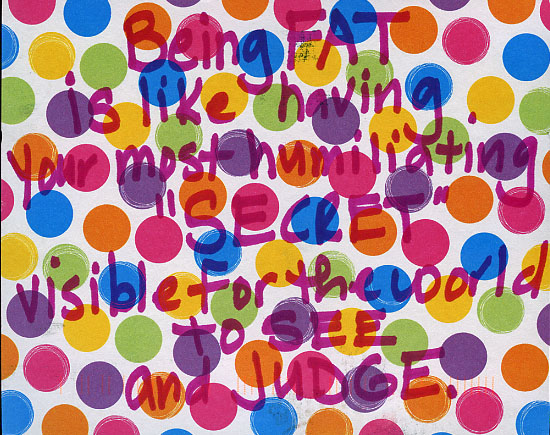Re-posted in honor of the 19 firefighters who lost their lives in Arizona yesterday. Cross-posted at BlogHer and The Huffington Post.
Firefighters put their lives on the line to protect other people’s property and lives. Why do they choose to take such dangerous work? Sociologist Matthew Desmond asks this question in his book, On the Fireline: Living and Dying with Wildland Firefighters, and the answer is truly surprising.
Desmond, who put himself through college fighting fires in Arizona, returned to his old job as a graduate student in order to study his fellow firefighters. When he asked them why they were willing to put their lives at risk to fight fires, the firefighters responded, “Risk? What risk?”
It turned out that the firefighters didn’t think that their work was dangerous. How is this possible?
Desmond explains that most of the firefighters were working-class men from the country who had been working with nature all of their lives. They raised cattle and rode horses; they cut down trees, chopped firewood, and built fences; they hunted and fished as often as they could. They were at home in nature. They felt that they knew nature. And they had been manipulating nature all their lives. Desmond wrote: “…my crewmembers are much more than confident on the fireline. They are comfortable.”
To these men, fire was just another part of nature. They believed that if you understood the forest, respected fire, and paid attention, then you could keep yourself safe. Period. Fire wasn’t dangerous. One of the firefighters put it like this:
Cause, personally, I don’t consider my life in danger. I think that the people I work with and with the knowledge I know, my life isn’t in danger… If you know, as a firefighter, how to act on a fire, how to approach it, this and that, I mean you’re, yeah, fire can hurt you. But if you know, if you can soak up the stuff that has been taught to you, it’s not a dangerous job.
When these men were called “heroes,” they laughed. Desmond wrote: “The thought of dying on the fireline is so distant from firefighters’ imaginations that they find the idea comedic.”
When a fellow firefighter did tragically die on the fireline during Desmond’s study, he discovered just how deep this went. Unwilling to consider the possibility that fire was dangerous (at least in front of each other), the only way to make sense of the death was to find fault in an individual, or even blame the dead firefighter for being “stupid.” Desmond recounts this conversation:
“That sucks,” J.J. said.
“Someone fucked up,” Donald responded, immediately. “I’ll tell you what happened: Someone fucked up…”
Heads nodded.
Craig Neilson, the Fire Prevention Officer, added, “Their communications might have been fucked. . . . The fire was under them and burned up.”
“They probably weren’t paying attention,” Donald said…
“They’re probably stupid. Probably weren’t talking to their crew,” Peter guessed.
“Yep. They’re fuckin’ stupid, not talking to anyone. They should’ve known better than to build a helispot on top of the fire,” said Donald.
Heads continued to nod…
Desmond’s answer to why firefighters take such a risky job — because they don’t think it’s risky — was a fabulous counterpoint to dominant theories of risk taking at the time, which tended to suggest that men who did risky things were trying to prove their masculinity or seek adoration as a hero.
It’s easy to conclude that the firefighters are delusional for thinking that fire isn’t risky, but Desmond does a wonderful job of showing that their denial of risk is mundane. We do it every day that we jump into a car and approach 70 miles per hour on the freeway. If we are worried about our safety, it’s usually because we are concerned about the skills and attention of other drivers. Most of us think that we, personally, are pretty decent, even great drivers. The firefighters tend to feel the same about fire.
Today’s deaths remind us that fire is dangerous. We should also remember that risky jobs are disproportionately filled by the least powerful members of our society. Wildland firefighters are typically low income men from rural backgrounds; in Desmond’s study, they were also disproportionately Latino and American Indian. As Desmond wrote: “Certain bodies, deemed precious, are protected, while others, deemed expendable, protect.” Let’s take a moment to remember the 19 who lost their lives yesterday, as well as the other men and women who do the dangerous work of America. And be careful everybody.
Note for Instructors: I teach this book in Soc 101, with great success. I wrote a review in Teaching Sociology and you can download my lecture notes here. And Talking Points Memo posted a slideshow of photos of a wildfire in Arizona.
Lisa Wade, PhD is an Associate Professor at Tulane University. She is the author of American Hookup, a book about college sexual culture; a textbook about gender; and a forthcoming introductory text: Terrible Magnificent Sociology. You can follow her on Twitter and Instagram.
 Thanks for reminding the ladies to be worried about their waistlines cheese people! It’s not as if we don’t get that message absolutely every time we turn around!
Thanks for reminding the ladies to be worried about their waistlines cheese people! It’s not as if we don’t get that message absolutely every time we turn around!









